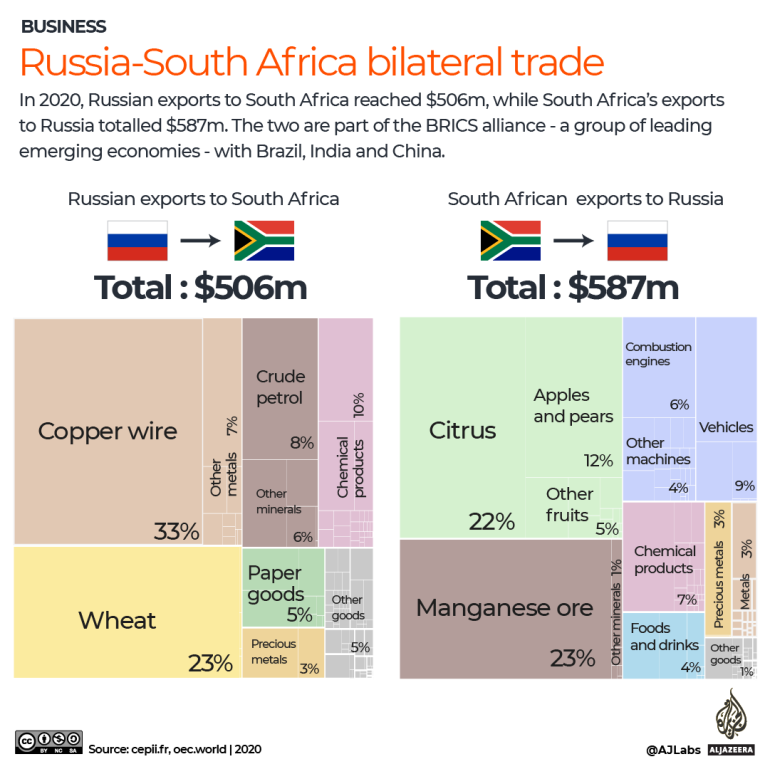South Africa has remained neutral on Russia’s war in Ukraine but is a strategic military and trade partner for Moscow.
He is to meet with his counterpart, Naledi Pandor, in the capital Pretoria on Monday in what South African government officials have said is an ordinary visit but deemed insensitive by some opposition parties and the small Ukrainian community.
A spokesman for Pandor’s department said Lavrov arrived in South Africa early in the morning and he expected to hold a joint new conference with Pandor at approximately 10:00 GMT.
President Cyril Ramaphosa’s government regards South Africa as neutral in the war in Ukraine and has expressed a desire to mediate.

Pandor has repeatedly insisted that South Africa will not be dragged into taking sides, and has criticised the West for selective condemnation of Russia while ignoring other acts of aggression like the Israeli occupation of Palestinian territory.
Even as South Africa has proclaimed impartiality on the conflict and abstained from voting on United Nations resolutions, it has retained close relations with Russia, historically a friend of the governing African National Congress when it was a liberation movement against white minority rule.
Both countries have also been trade partners for years, with Russian exports to Russia reaching $587m in 2020, while Russian exports to South Africa totalled $506m.
The South African military is set to host a joint military exercise with Russia and China on its east coast on February 17 to 27, a move likely to further strain ties with Washington and European countries. It coincides with the first anniversary of Russia’s invasion of Ukraine on February 24 last year.
But John Steenhuisen, leader of South Africa’s main opposition party, the Democratic Alliance (DA), went on a fact-finding mission to Ukraine in May 2022, and has disagreed with his government’s position.
“Russia’s expansion into Africa has been through ‘elite capture’, where pliable leaders are ensnared in long-term patronage schemes,” Steenhuisen claimed. “Fifteen African nations are currently involved in Russian-financed nuclear power deals, and many more are locked into Russian security contracts.”
